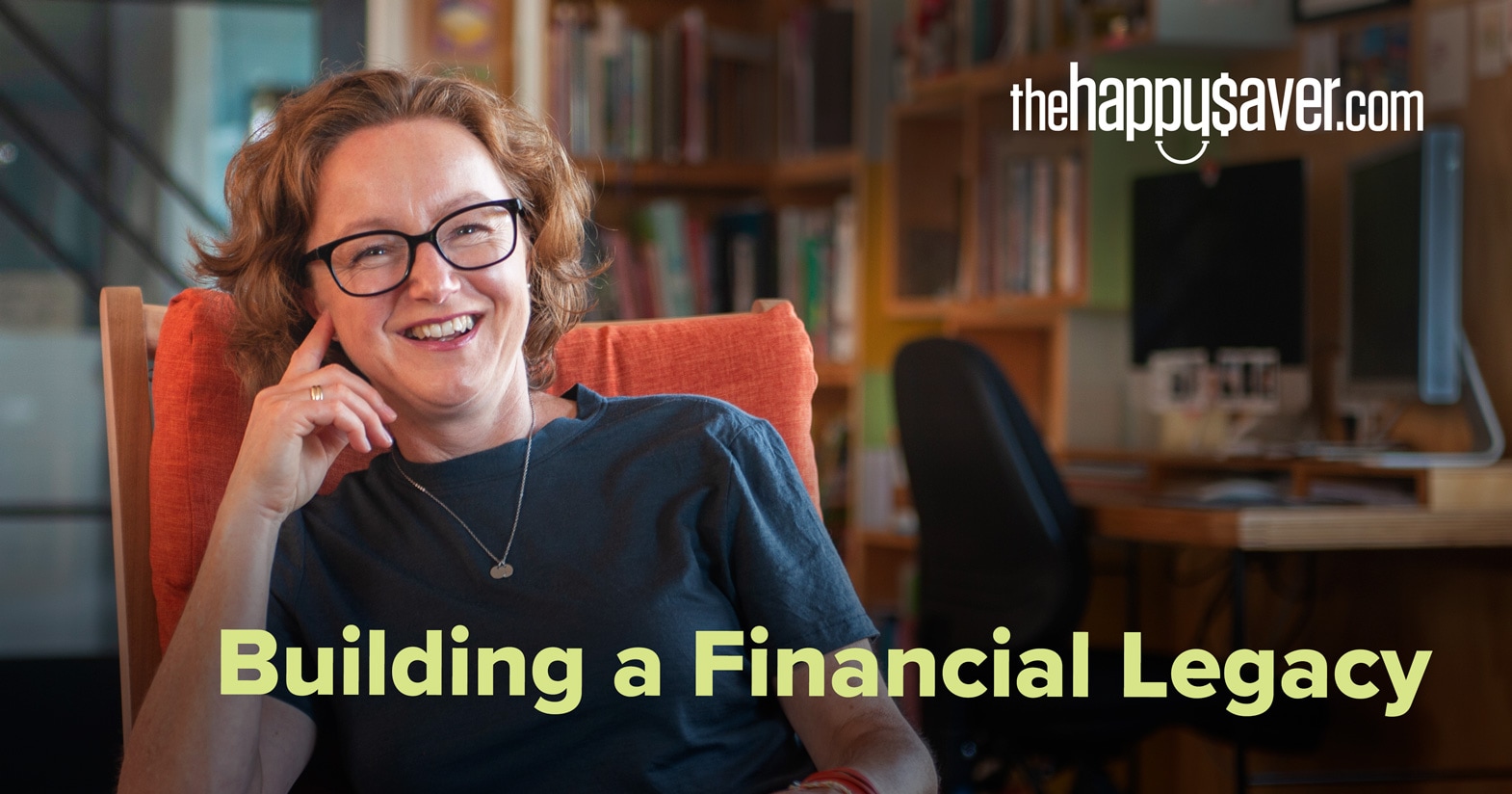
When I think about what building a financial legacy means to me, this comes to mind:
I am empowering myself to have the financial knowledge to put my money to work in the best possible way to support my family and the wider community today. Long after I’m gone, I give my descendants the knowledge to carry on and build upon the legacy I leave behind. And so on down the generations.
If you have ever had the thought, “I wish someone taught me about money growing up,” then chances are you haven’t received a financial legacy. Neither a verbal one, by way of financial education as you grew up, nor a monetary one in the form of an inheritance.
If you have ever daydreamed about what you would do if you won the lottery and realized that the fictional you would give most of it away because it’s too much for one person to keep, then you are ripe for planning what your financial legacy could become. How great does it feel to give to others, even if it’s only in your imagination?
Too many of us have to reinvent the wheel generation after generation, working out how to earn, save, share and spend money. But what if these essential skills were instead carefully taught to each generation, it would mean that we each had more than enough money to live an extraordinary life. We each add to the stash while we are here on Earth and then send it on to the next generation to carefully build, tend and share.
I can only be in a position to help others if I’m okay myself. That is the first place to begin, by shoring up the foundation of my own financial house, making it resilient and strong. From that point, I can be generous with both time, knowledge and money. And I don’t have to be financially independent to make a start. Instead, flexing those muscles by donating money to charity while I grow my wealth will mean that I will be well used to being generous by the time I feel completely financially secure. Sharing will feel natural.
While I was growing up, my parents modeled generosity with both time and money. I’ve internalized those actions and added to them. I now model kindness and generosity to my child, showing her how to be aware of the needs of others and help out with time, knowledge and money. It’s a process. I teach her to manage her own money well so that one day when she inherits from me, she will manage my money well.
You feel good when you help other people. Try it and see if I’m right. Find a worthy cause and help someone out. It’s good for your soul. The times in my life that others have helped me have had a profound impact. It’s important to me to help myself, my family and others — even those whom I may not even know — because the effects of my actions are wide-reaching.
I find ways to flex my ‘giving’ muscle by reaching into my wallet and giving with no strings attached (except when I buy a chocolate bar off a fundraising school kid — I want that chocolate in return!). More recently, I was proud to set up The Happy Saver Tertiary Scholarship as part of my blog. It’s just one way to make sure we set up structures to give, which are ongoing.
There is no point hoarding all your money, getting to your end goal, and having no one to play with. By bringing your family and community along for the ride, life is far more rewarding, in my opinion. The expression “a rising tide lifts all boats” comes to mind.
The concept of “skiing” (spending kids inheritance) points to the inability to plan a financial legacy and has shown me a path that I don’t want to take. I don’t want everything I’ve created to stop with me. It feels like a waste.
Instead, I want to enjoy a rich and full life while I’m here on Earth. I want to actively share with others and leave more than I started with so that future generations can enjoy it too. Because I trust that those coming after me will do an equally good job, I don’t have to blow every cent and try and leave this earth with zero. When you create a financial legacy that you know you will pass on, much trust is involved.
Through estate planning and creating a will that outlines my wishes upon my death, I can say how my wealth is to be distributed. But what is more important is the knowledge I share while I’m here, teaching my child to be a responsible handler of money, both hers, as she makes her own, and mine when the day comes and I pass it on. At that point, all I can do is trust that I’ve done enough to ensure that inherited wealth is a benefit and not a curse and that she will, in turn, hand it on down the generations.
While I’m alive and kicking, I am generous with my time, knowledge, and money. Whatever bucket I empty, it seems that it fills right back up again, meaning that I continue to live a contented life while I build my financial legacy and equip the next generation, my daughter, to receive it.
Ruth blogs at thehappysaver.com all about how she and her family handle money. What’s the secret? Spend less than you earn, invest the difference, avoid debt and budget each dollar that flows through your hands. She firmly believes that if you can just get the basics right, life becomes easier from there on in.